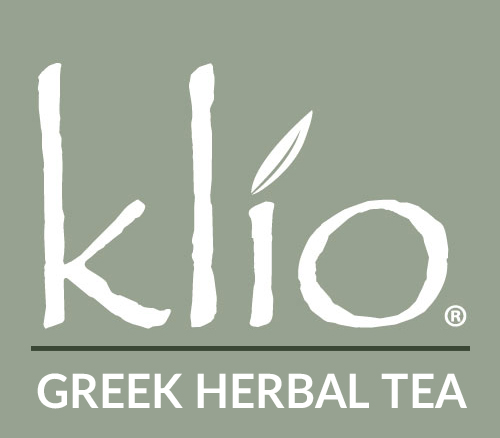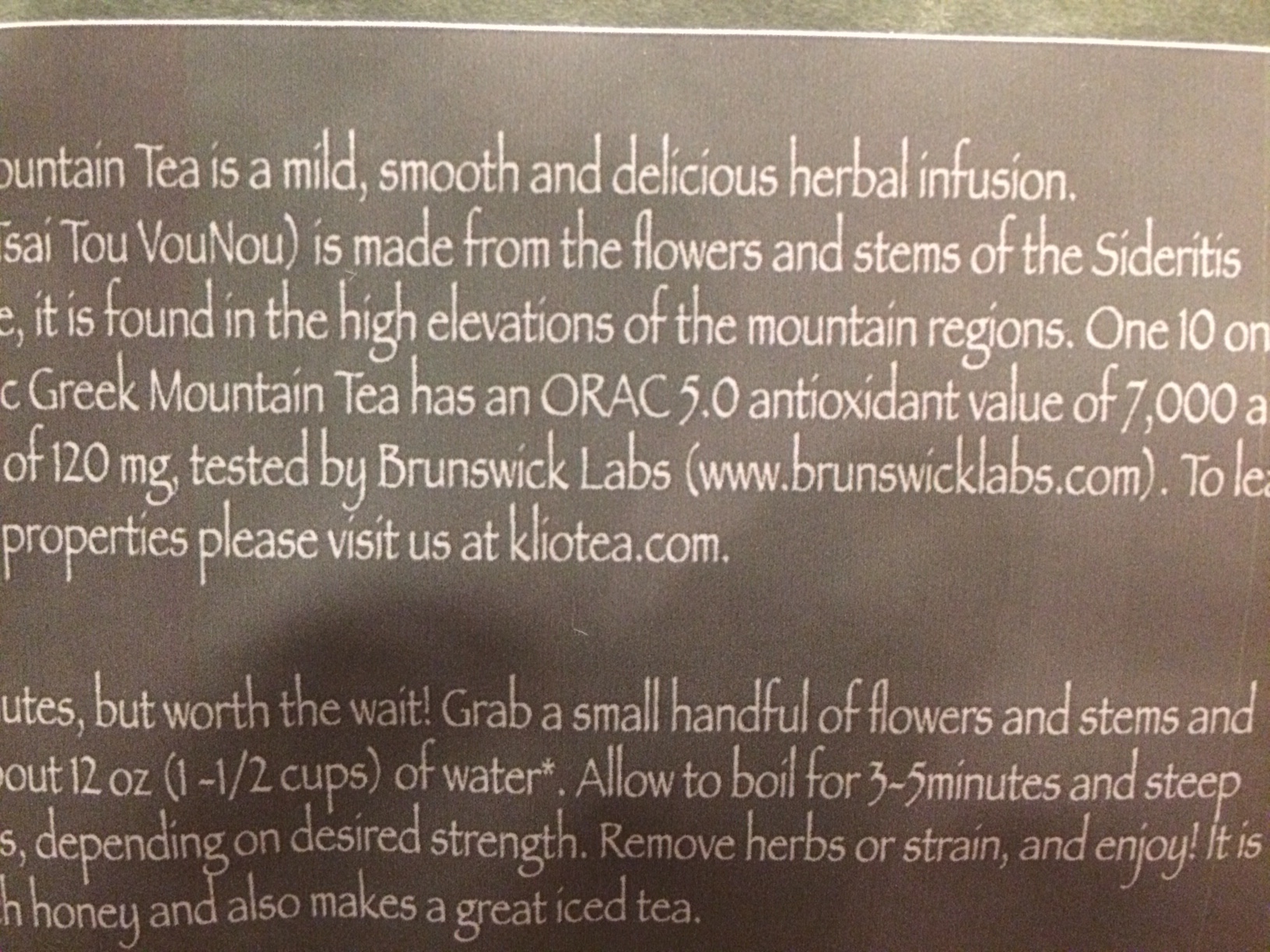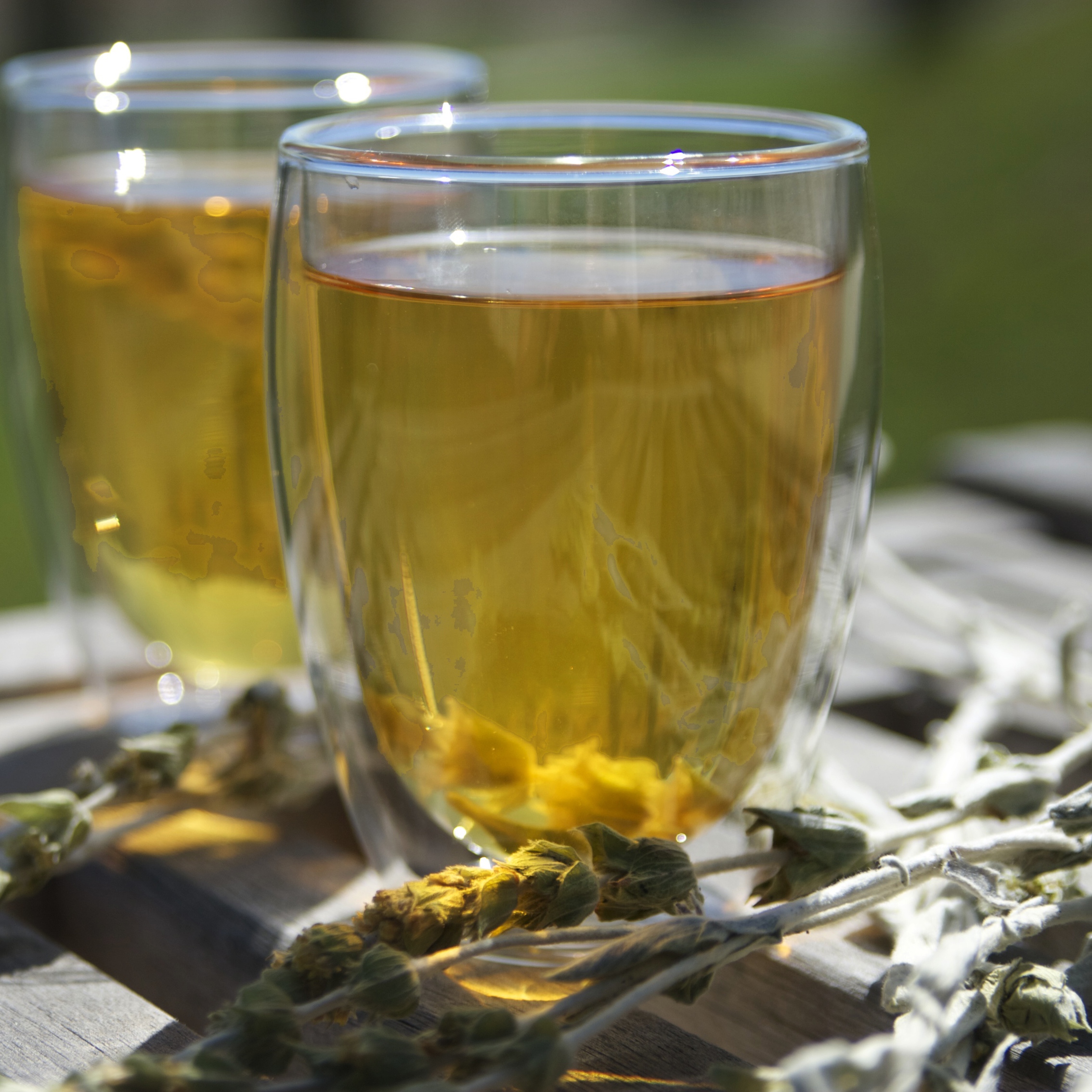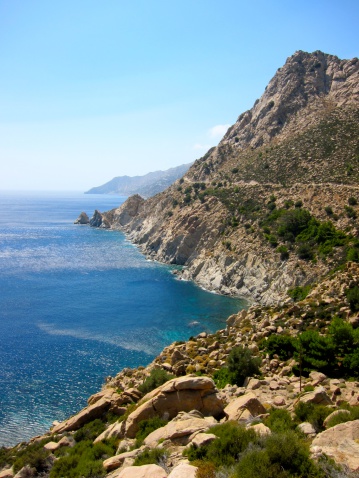Many of our teas are known for having high levels of antioxidants. We have had our Greek Mountain Tea tested by Brunswick Labs (www.brunswicklabs.com), the premier antioxidant test lab. And will test others as we offer them. Brunswick utilizes the most advanced antioxidant testing technology, called ORAC 5.0, which provides measurements of the antioxidant capacity against the five most common Radical Oxygen Species found in humans. Standard ORAC testing only measures one.
I think this is useful information for consumers and hopefully more companies will start utilizing advanced antioxidant tests such as these to provide factual data about their products. But unfortunately, like all things, this still leaves room for the unscrupulous to use a “sleight of hand” with the facts, and mislead consumers. One tea brand, for example, compares a serving of their tea (which consists of 3 grams of tea plus 8 oz of water) with 3 gram servings of blueberries and pomegranates, both of which are known for their high antioxidants. Their tea has an antioxidant value approaching 2,000, while the blueberries and pomegranates are each around 150. So their tea has 13x the antioxidants of blueberries! That’s pretty amazing tea, right? Problem is - a 3 gram serving of blueberries is less than one actual berry. An actual serving of blueberries is more like a half cup (113 grams). In which case the antioxidants per serving are more like 5,000+. The honest comparison therefore would be that a serving of their tea has about 2,000 antioxidants versus a serving of blueberries, which has about 5,000. While less impactful it is honest– and consumers deserve the clear truth. Although there is nothing incorrect about the data they are sharing, it is entirely misleading. By the way, 3 grams equals 1/10 of an ounce. So one serving of their tea has 13x the antioxidants of one tenth of an ounce of blueberries. Hhhmmm….
I emailed the owner about this last year but did not receive a response. And I noticed their tea on the shelf at Whole Foods last week with the same claim still on the package.
If you ever see anything on our website or marketing materials that you believe to be misleading please bring it to my attention: steve@klioteacom. If you are right, I will publicly acknowledge it, immediately correct it, and I will send you some free tea for taking the time to bring it to my attention.
By the way, our Organic Greek Mountain Tea has an ORAC 5.0 antioxidant value of approximately 7,000 per 10 oz serving and a polyphenol measurement of approximately 120 grams. This is not comparable to the antioxidant levels described above because it is a broader test. We have also had Brunswick test a high quality organic green tea (pure/unblended) and a rooibos tea, both purchased from Whole Foods, to see how they compared. The rooibos was lower than our mountain tea, while the green tea score was meaningfully higher (10,000 and 150, respectively). Presumably a blended green tea would score lower than the pure one we tested. So if you want the exact same antioxidants as pure green tea, you’ll have to drink a few more ounces of our Greek Mountain Tea. But that’s easy, because it taste a lot better:). In fairness, green tea has other very beneficial properties, such as catechins, which Greek Mountain Tea does not have. Conversely, Greek Mountain tea has a broad range of other phytonutrients and high amounts of beneficial essential oils. If this is making you dizzy, I suggest taking a break and brewing a big soothing mug of our Greek Mountain tea – it’s naturally caffeine free of course, so don’t let the time of day get in the way.
More to come on ORAC 5.0 and antioxidants later…..stay tuned.





